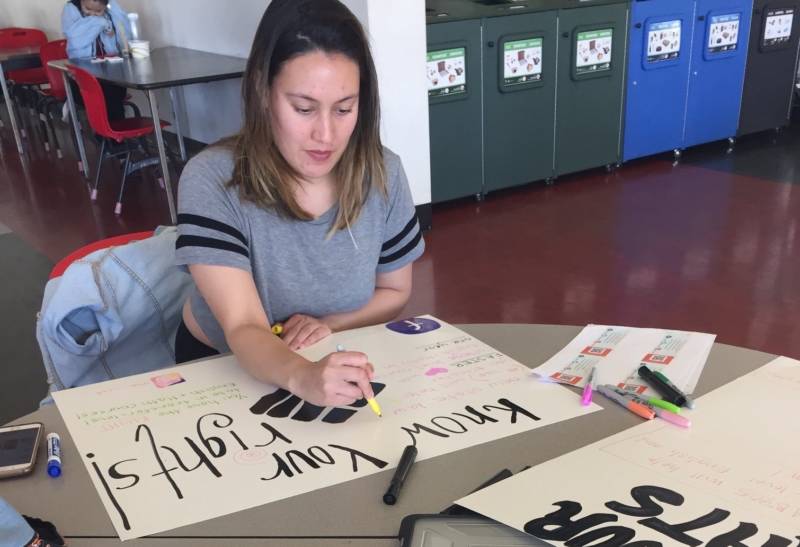After finishing high school, Marjorie Blen enrolled in community college with the hopes of transferring to a four-year school to earn her education degree and become an elementary school teacher.
The first in her family to attend college, Blen said her plans were derailed when she was placed in a remedial algebra class at Contra Contra Community College, an experience she found discouraging and belittling, and one that led her to eventually drop out of school altogether. After working for several years at an accounting firm and in child care facilities, Blen enrolled in a different community college, only to go through the same disillusioning process.
“I only needed this class to get to the transfer level,” said Blen, now 28, and a mother of two. “I didn’t need it for anything else in my life.”
In the process of repeatedly enrolling and dropping out school, Blen said, she ended up wasting thousands of dollars and a few years.
“I lost three years of my life,” she said. “That would be what? Six semesters. Moneywise, I probably lost close to $10,000, at least, with books, transportation, money and everything it takes to go to college.”
Nearly a decade later, Blen is giving college yet another try, this time split between San Francisco City College and Skyline College in San Bruno, where she’s majoring in sociology and has since discovered that she can fulfill her math requirement with a statistics course.
New research shows that Blen’s experience is not unique, said Katie Hern, an English instructor at Chabot College in Hayward who studies graduation rates at the community-college level. Students, she said, grow easily discouraged because remedial courses don’t count toward University of California transfer credit or graduation requirements.
She added that black and Latino students are disproportionately placed in remedial classes.
“There were vast inequities in our traditional approaches to placing students in English and math and requiring remediation,” Hern said. “Even though these remedial courses were intended to help students, they actually make them less likely to complete college.”
Under a new state law enacted in 2018, community colleges can no longer require most students to take remedial classes; schools must instead offer college-level math and English course alternatives.
As part of the rollout, many schools are now starting to provide for-credit options to help students catch up academically while also meeting graduation requirements.

